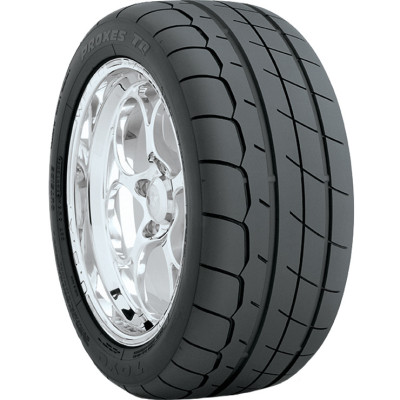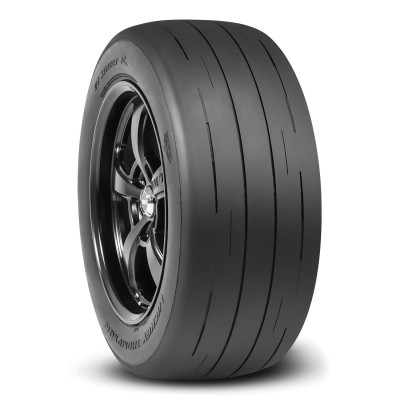The D.O.T. Drag Radial 2 is Hoosier's redesigned Drag Racing Radial tire developed for drag racers that compete in sanctioned events at local strips. D.O.T. Drag Radials feature Hoosier's race-proven technology and compounds, making them ideal for competition classes that require street-legal tires.
WARNING: D.O.T. labeled Hoosier Racing Tires meet Department of Transportation requirements for marking and performance only and are NOT INTENDED FOR HIGHWAY USE. It is unsafe to operate any Hoosier Racing Tire, including DOT tires, on public roads. The prohibited use of Hoosier Racing Tires on public roadways may result in loss of traction, unexpected loss of vehicle control, or sudden loss of tire pressure, resulting in a vehicle crash and possible injury or death.
And like other Track & Competition DOT tires, these tires are not intended to be stored, serviced or driven in near- or below freezing temperatures, through snow or on ice.
D.O.T. Drag Radial 2 tires feature a special tread compound molded into a slick tread design interrupted only by five-dash circumferentially oriented grooves alternating outboard and inboard. Beginning with a molded tread depth of just 4/32", they are ready for competition after being scuffed-in. The tire features an improved tread profile to help deliver the best performance results. Its internal structure features symmetric nylon cord casing plies reinforced by two lightweight belts and spirally wrapped nylon reinforcement under the tread.
Hoosier's burnout procedure for most cars recommends rolling through the water box to wet the tires. Start the burnout. However once the tires begin to "haze", slow the burnout and proceed to the start line. The burnout's goal is to clean all debris off the tires and heat just the surface of the tread. Since most wear to the treadlife of a drag tire comes from too much time in the burnout procedure, shorten burnout time in the water box if you feel you are getting too much wear.
The D.O.T. Drag Radial 2's symmetric tread design and internal construction allows them to be installed on either side of the car. Hoosier suggests swapping tires from side-to-side on a regular basis to help smooth out and/or even treadwear. Side-to-side swapping also allows tires to run in both directions, thus causing the tire to wear differently, which helps clean up the tread. The tread surface should have a fine grain or velvet look.
The useful life of a tire, whether mounted or dismounted, is directly affected by storage conditions. Tires should always be stored indoors in a dark, cool, dry room. Remove the tires from the vehicle. Release the air pressure and lay the tires on their sides. Maintain the temperature range in the storage location between 40-90 degrees Fahrenheit. Don't store tires in sub-freezing temperatures for any length of time, as it will cause the rubber to freeze and possibly crack.






















